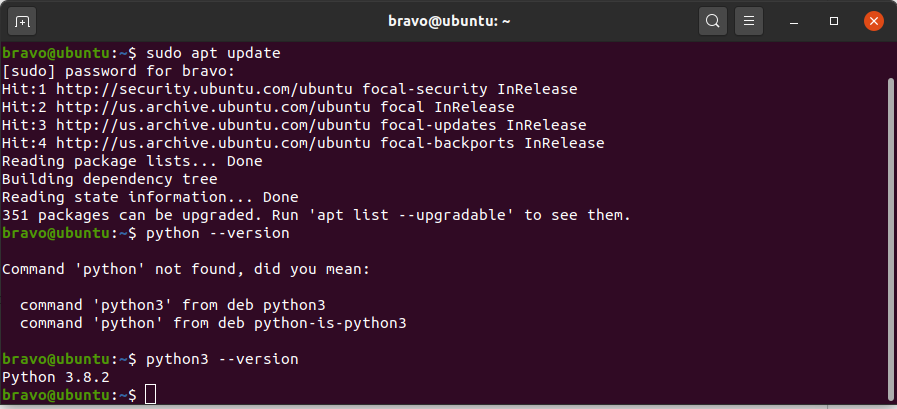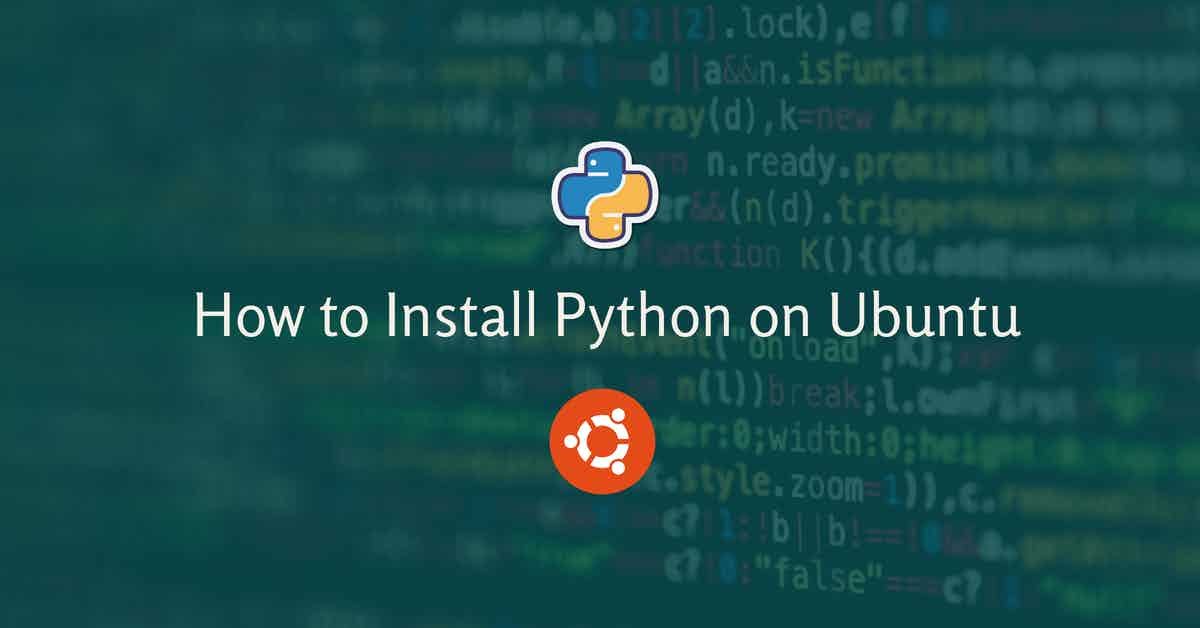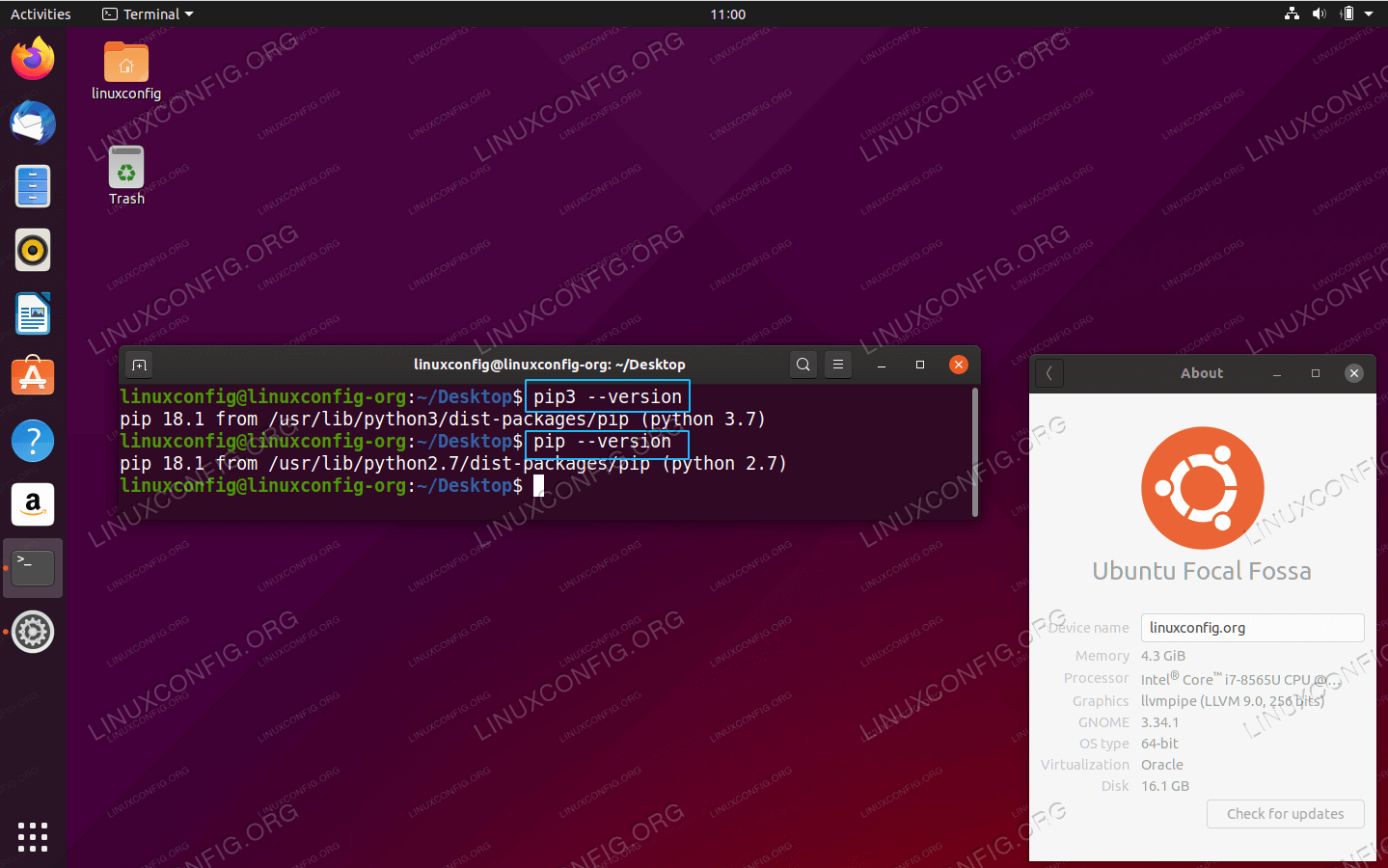

- Fresh install python 2.7 ubuntu how to#
- Fresh install python 2.7 ubuntu update#
- Fresh install python 2.7 ubuntu code#
- Fresh install python 2.7 ubuntu series#
Install virtualenv and virtualenvwrapper. Install pip, a Python package manager: $ wget

Install libraries that are used to optimize various routines inside of OpenCV: $ sudo apt-get install libatlas-base-dev gfortran We can load images using OpenCV, but what about processing video streams and accessing individual frames? We’ve got that covered here: $ sudo apt-get install libavcodec-dev libavformat-dev libswscale-dev libv4l-dev But how do we display the actual image to our screen? The answer is the GTK development library, which the highgui module of OpenCV depends on to guild Graphical User Interfaces (GUIs): $ sudo apt-get install libgtk2.0-dev In order to load these image formats from disk, we’ll need our image I/O packages: $ sudo apt-get install libjpeg8-dev libtiff4-dev libjasper-dev libpng12-devĪt this point, we have the ability to load a given image off of disk. OpenCV needs to be able to load various image file formats from disk, including JPEG, PNG, TIFF, etc. The cmake package is used to configure our build. We’ll be using git to pull down the OpenCV repositories from GitHub. The pkg-config is likely already installed, but be sure to include it just in case. Now we need to install our developer tools: $ sudo apt-get install build-essential cmake git pkg-config

Fresh install python 2.7 ubuntu update#
Open up a terminal and update the apt-get package manager followed by upgrading any pre-installed packages: $ sudo apt-get update In general, you should find installing OpenCV 3.0 and Python 2.7+ on Ubuntu much easier than installing on OSX. Today we are going to perform the same OpenCV 3.0 and Python 2.7 installation, only on the Ubuntu operating system.
Fresh install python 2.7 ubuntu how to#
Last week we covered how to install OpenCV 3.0 and Python 2.7+ on OSX. This is the second article in the OpenCV 3.0 install-fest series. This tutorial still works perfectly, but if you want to install OpenCV on the newer Ubuntu 16.04 with OpenCV 3.1 and Python 2.7 (or Python 3.5) bindings, please use this freshly updated tutorial:

UPDATE: The tutorial you are reading now covers how to install OpenCV 3.0 with Python 2.7+ bindings on Ubuntu 14.04. How to Install OpenCV 3.0 and Python 2.7+ on Ubuntu But for the time being, let’s stick with Python 2.7. If you would like to use OpenCV 3.0 and Python 3+ on your Ubuntu system, please keep an eye on this blog - I will be posting OpenCV 3.0 and Python 3+ install instructions later this month. In an effort to keep each article self-contained and easy to follow, I am creating separate OpenCV 3.0 install tutorials for Python 2.7 and Python 3+. However, the install instructions are slightly different between Python 2.7+ and Python 3+. I have personally tested these instructions on Ubuntu 14.04, but they should pretty much work on any Debian-based operating system.Ī quick note before we get started: Yes, OpenCV 3.0 is indeed compatible with Python 3+. In the remainder of the post I will provide instructions on how to configure and install OpenCV 3.0 and Python 2.7+ on Ubuntu.
Fresh install python 2.7 ubuntu series#
Today we are going to continue the OpenCV 3.0 install instruction series by moving over to the Ubuntu operating system. Last week we kicked-off the OpenCV 3.0 install fest by detailing how to install OpenCV 3.0 and Python 2.7+ on the OSX platform.
Fresh install python 2.7 ubuntu code#
Install Python 3.6 in Ubuntu 16.10 and 17.Click here to download the source code to this post $ sudo add-apt-repository ppa:deadsnakes/ppa To install latest Python 3.6 version, you can use “ deadsnakes” team PPA which contains more recent Python versions packaged for Ubuntu. To install Python 3.6 from sources in all major Linux distributions, check out this guide: How to Install Latest Python 3.6 Version in Linux Install Python 3.6 in Ubuntu 14.04 and 16.04īy default, Ubuntu 14.04 and 16.04 ship in with Python 2.7 and Python 3.5. In this article, we will explain how to install latest Python 3.6 in Ubuntu 14.04, 16.04, 16.10 and 17.04 via the APT package manager. Ubuntu 18.04 as well as Ubuntu 17.10 come with Python 3.6 pre-installed, which is not the case for older Ubuntu versions. The latest stable release of Python 3 is version 3.6. There are two major Python versions being used – 2 and 3 (the present and future of Python) the former will see no new major releases, and the later is under active development and has already seen a lot of stable releases over the last few years. There are a number of reasons attributed to this, such as its readability and flexibility, easy to learn and use, reliable and efficient as well. Python is the fastest-growing major general purpose programming language.


 0 kommentar(er)
0 kommentar(er)
